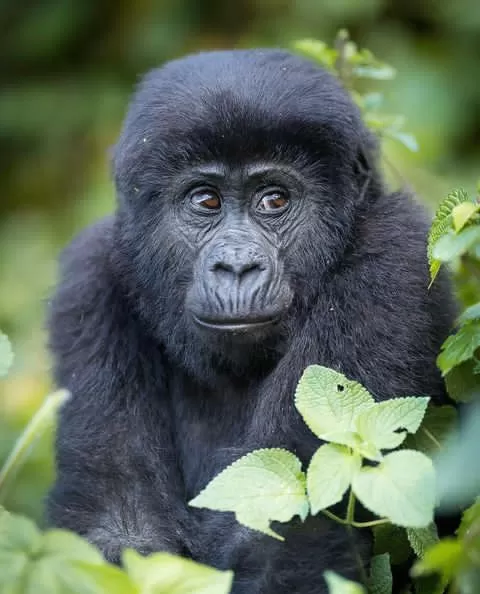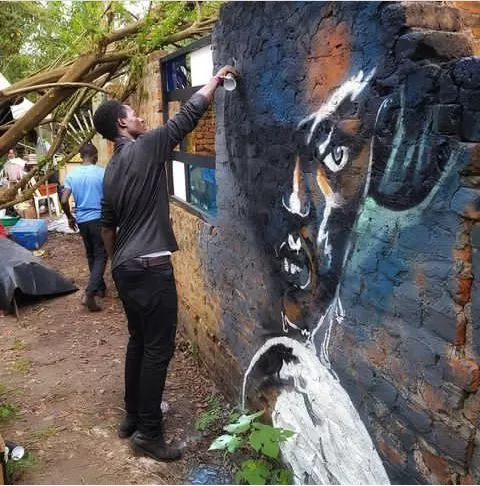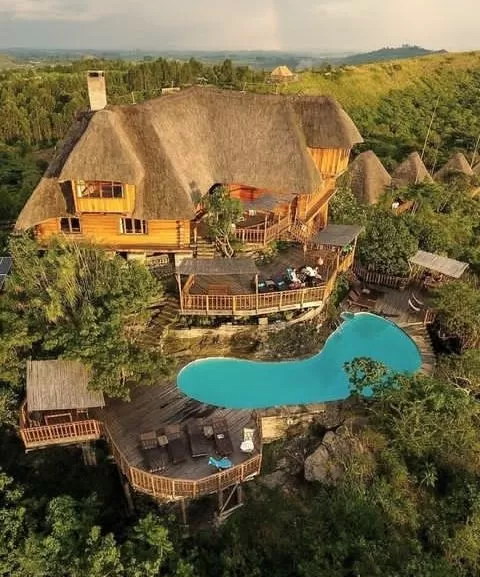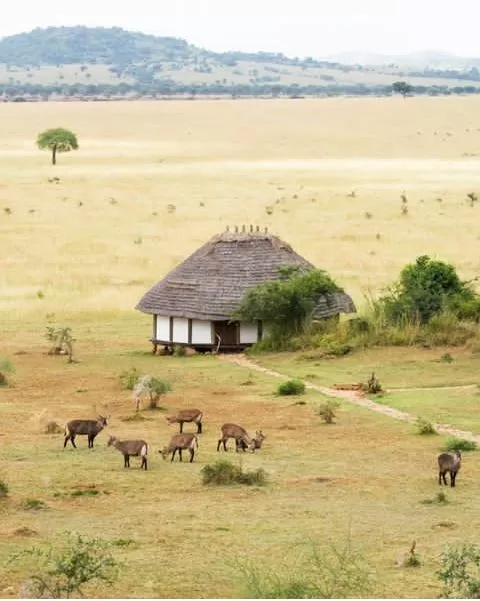Welcome to the fascinating world of Uganda, a country known for its diverse wildlife, natural beauty, rich cultural heritage, and warm-hearted people. In this article, we will explore some of the most Uganda interesting facts that make it a unique and captivating destination. From its location and history to its vibrant culture and stunning landscapes, Uganda has much to offer. So, let’s dive into this African gem and discover what sets it apart.
Location of Uganda

Situated in East Africa, Uganda is bordered by South Sudan to the north, Kenya to the east, Tanzania to the south, Rwanda to the southwest, and the Democratic Republic of the Congo to the west.
Its central location on the African continent makes it a gateway to various neighboring countries, offering travelers an opportunity to explore the region.
History of Uganda

Uganda’s history is rich and complex, shaped by ancient kingdoms, colonial rule, and struggles for independence.
It was home to several powerful kingdoms, including the Buganda Kingdom, which played a significant role in shaping the country’s cultural heritage. Uganda gained independence from British colonial rule in 1962 and has since made remarkable progress in its development.
Ugandan Culture

Uganda is a culturally diverse nation with over 50 different indigenous tribes. Each tribe has its unique customs, traditions, and languages, contributing to the country’s vibrant cultural tapestry.
The Baganda, Banyankole, Acholi, and Langi are among the largest ethnic groups, and their traditions are celebrated through music, dance, storytelling, and art.
Wildlife

One of Uganda’s major attractions is its incredible wildlife. The country is home to a wide variety of species, including the endangered mountain gorillas, which can be found in the Bwindi Impenetrable National Park and Mgahinga Gorilla National Park. Visitors can also spot lions, elephants, buffalos, and numerous bird species in the renowned Queen Elizabeth National Park and Murchison Falls National Park.
Natural Beauty
Uganda boasts breathtaking natural beauty, from the mighty Nile River and the stunning Murchison Falls to the tranquil Lake Victoria, the largest lake in Africa.
The Rwenzori Mountains, also known as the Mountains of the Moon, provide a striking backdrop for adventurers seeking hiking and mountaineering experiences. The country’s diverse landscapes offer a paradise for nature lovers and outdoor enthusiasts.
Languages
Uganda is a linguistically diverse nation, with English and Swahili being its official languages. Additionally, there are numerous local languages spoken across the country, such as Luganda, Runyankole, Acholi, and Luo.
Embracing the linguistic diversity of Uganda allows visitors to connect more deeply with the local communities and immerse themselves in the cultural richness.
Food

Ugandan cuisine reflects the country’s agricultural abundance and cultural influences. Staple foods include matooke (cooked bananas), which are often served with groundnut sauce, and posho (maize meal).
Ugandan cuisine also features delicious dishes like rolex (a rolled chapati filled with eggs and vegetables), matoke stew, luwombo (a traditional dish cooked in banana leaves), and much more. Exploring the local culinary delights is a must-do for any food enthusiast visiting Uganda.
Festivals

Uganda is a land of vibrant festivals and celebrations. One of the most notable festivals is the Buganda Kingdom’s Kabaka’s Birthday, which honors the king’s birthday with colorful parades, traditional dances, and music.
The Nyege Nyege International Music Festival has gained international acclaim, attracting music lovers from around the world to enjoy a fusion of African and global sounds. These festivals provide a fantastic opportunity to immerse oneself in the lively spirit of Uganda.
Music
Music plays a significant role in Ugandan culture, and the country has a diverse music scene. Traditional music styles like kadongo kamu, which blends folk and country music, and acholi folk music have a strong presence.
In recent years, Ugandan pop music, known as “Ugandan Afrobeat,” has gained popularity, with artists like Eddy Kenzo and Sheebah becoming national sensations. The rhythmic beats and soulful melodies of Ugandan music reflect the country’s vibrant spirit.
Sports
Sports hold a special place in the hearts of Ugandans, with football (soccer) being the most popular sport in the country. The national football team, nicknamed the “Uganda Cranes,” has a passionate fan base.
Ugandan athletes have also excelled in long-distance running, with names like Joshua Cheptegei and Stephen Kiprotich bringing home Olympic and World Championship medals. Engaging in sports activities or catching a live match can be an exciting way to experience the country’s sporting culture.
Tourism

Uganda is a hidden gem for tourism, offering a wide range of attractions for nature enthusiasts, wildlife lovers, and adventure seekers.
Apart from gorilla trekking, visitors can go on thrilling safaris to spot the Big Five (lions, elephants, leopards, rhinos, and buffalos), enjoy boat cruises on the Nile River, explore ancient cultural sites, and embark on thrilling outdoor activities like white-water rafting and hiking.
The country’s untouched beauty and warm hospitality make it an ideal destination for off-the-beaten-path exploration.
Economy
Uganda’s economy is diverse, with agriculture being a major contributor. The country is known for its coffee production, exporting high-quality Arabica and Robusta coffee beans worldwide.
Additionally, sectors such as tourism, manufacturing, telecommunications, and oil exploration are playing an increasingly important role in driving Uganda’s economic growth. The government has implemented various initiatives to attract foreign investment and promote sustainable development.
Education
Education is highly valued in Uganda, with a focus on increasing access to quality education for all. The country has made significant progress in improving literacy rates and expanding educational opportunities.
Primary and secondary education is free and compulsory, and efforts are being made to enhance vocational training and higher education options.
Ugandan universities are producing skilled professionals in various fields, contributing to the country’s human capital development.
Infrastructure

Uganda has been investing in infrastructure development to support its growing economy and enhance connectivity. Improvements in transportation networks, including roads, railways, and airports, have made it easier for both domestic and international travelers to access different parts of the country.
The construction of modern hospitals, schools, and other public facilities has also been prioritized, contributing to the overall development and well-being of the Ugandan people.
Uganda is a captivating destination with a wealth of interesting facts and experiences to offer. From its diverse wildlife and natural beauty to its rich cultural heritage and warm-hearted people, the country leaves a lasting impression on visitors.
Whether you’re trekking to see the majestic mountain gorillas, exploring the vibrant music and dance scene, or immersing yourself in the cultural festivities, Uganda provides a unique and enriching journey.
Plan your trip to Uganda and discover the magic of this extraordinary East African nation.
Thank you for reading this article.
Related articles
Sao Tome and Principe: A Hidden Gem in the Atlantic Ocean
Is Seychelles In Africa? Where Is Seychelles Island?
Zambia Tourism: Best Things To Do On Your Explore

